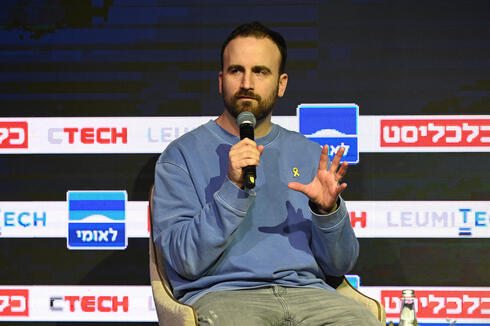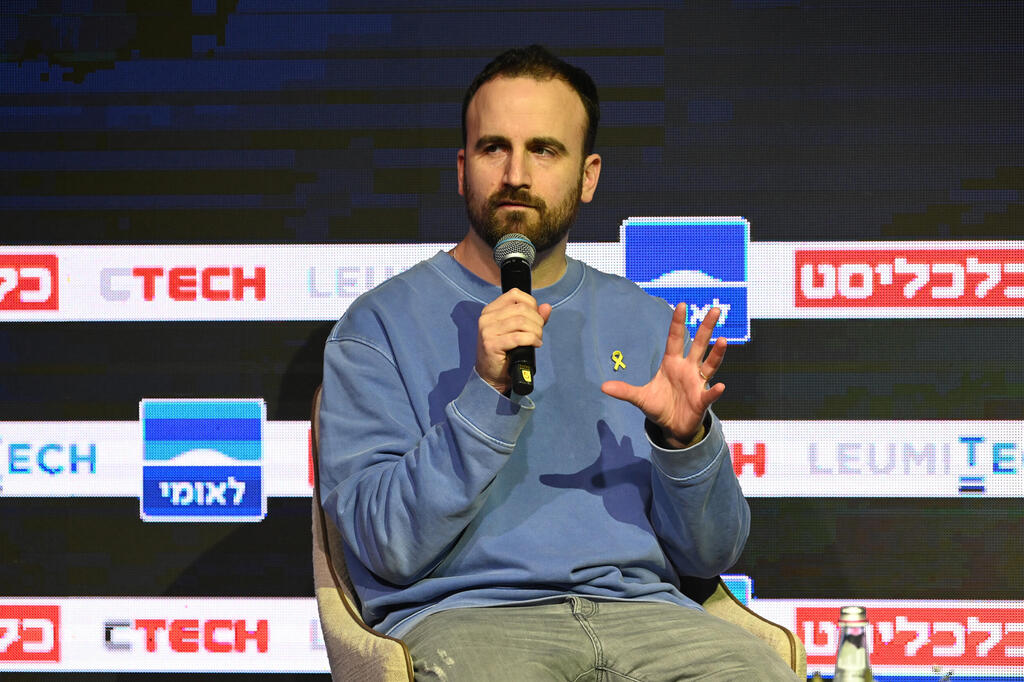
Tech TLV
Empathy CEO: "We help those who experienced loss get back on their feet"
Ron Gura, co-founder and CEO of Empathy, spoke at the Calcalist and Bank Leumi Tech TLV conference about how the startup's platform helps families deal with loss.
"Our breakthrough was in helping those who have experienced loss get back on their feet. Until now, there was no global solution for this issue. People don’t want to confront their own mortality," said Ron Gura, co-founder and CEO of Empathy, during a conversation with Calcalist journalist Meir Orbach at the Calcalist and Bank Leumi Tech TLV conference.
Gura, a seasoned entrepreneur, co-founded The Gift Project, which was acquired by eBay in 2011. He worked at eBay and WeWork for several years and has recently been leading Empathy, a company innovating in the challenging field of dealing with death and loss by providing emotional and financial support to those in need.
Ron, tell us a little about what Empathy actually does.
"Empathy is a company I founded four years ago to help families cope with loss—emotionally, financially, and bureaucratically. We operate mainly in the U.S. and Canada, and so far, we’ve raised $90 million. We primarily collaborate with American insurance companies. Our goal is to assist families in navigating the challenges posed by insurance companies and financial entities during one of the most critical periods of their lives."
It’s a little hard for people in Israel to understand this, but dealing with loss in a financial and bureaucratic sense is completely different in the U.S. compared to Israel. Can you explain the differences?
"Loss is incredibly difficult, and everyone experiences it differently. Emotionally, there’s no difference between Tokyo, São Paulo, or Tel Aviv. But administratively, it’s a completely different story, and the U.S. is an extreme example. If there’s a 'best' place to lose someone, it would be Israel. This isn’t just because of Judaism and the meaningful custom of Shiva (the 7-day mourning period), but also because, in Israel, unlike the U.S. or Australia, there is no estate tax or inheritance tax.
"In the U.S., families often face over 18 months of bureaucratic processes, tens of thousands of dollars in financial losses, and more than 450 hours of dealing directly with estate-related paperwork—all while coping with their grief, which is something none of us are spared."
Is this primarily due to the size of the U.S. and the differences between states?
"It’s primarily due to the U.S. tax system. Every Israeli knows that self-employed people in Israel must file tax reports while employees typically don’t. In the U.S., however, everyone files annual tax returns. Similarly, estate management follows the same logic—it’s your responsibility to report and organize everything until the IRS (Internal Revenue Service) gets involved.
"If my father passed away, for example, paying estate taxes requires understanding the total assets and liabilities. Mapping these out is just the beginning; managing the estate becomes a completely separate issue. It’s further complicated by whether or not there was a will. It’s a very complex process. Ultimately, in addition to the emotional toll, the average American faces years of paperwork."
What is Empathy doing to make things easier?
"Our solution is straightforward, but the breakthrough lies in addressing the need itself. Until now, there was no global technology designed to tackle this issue."
Because people were afraid to address it?
"Yes, the main barrier isn’t technological—it’s psychological. There’s an inherent aversion. If I had to guess, I’d say many people avoid thinking about their own mortality. Part of our breakthrough was in empowering people—taking this overwhelming event and helping those who’ve experienced loss get back on their feet. Once you overcome the initial reluctance, you can start planning a journey of recovery and growth.
"Our technology simplifies everything—from filling out forms to dealing with taxes. It saves time and minimizes stress.
"It’s a complex and profound field. You have to consciously decide to enter it because no one deals with End-of-Life issues for fun. I’ve had my own share of loss. My brother Eyal (also a serial entrepreneur) and I both lost a brother when we were younger. It deeply affected us and shaped how we grew up, especially for my mother, who was profoundly impacted.
"I understood a lot about grief but very little about bureaucracy. When I was at eBay, after they acquired my first company, The Gift Project, one of my employees lost his wife. I visited him at home, and the entire conversation felt surreal—he asked me when I expected him to return to work, and this was just a day after the funeral. That experience stayed with me. I realized that a tool needed to be created to address this issue. It took me years to understand that I would be the one to create it."














